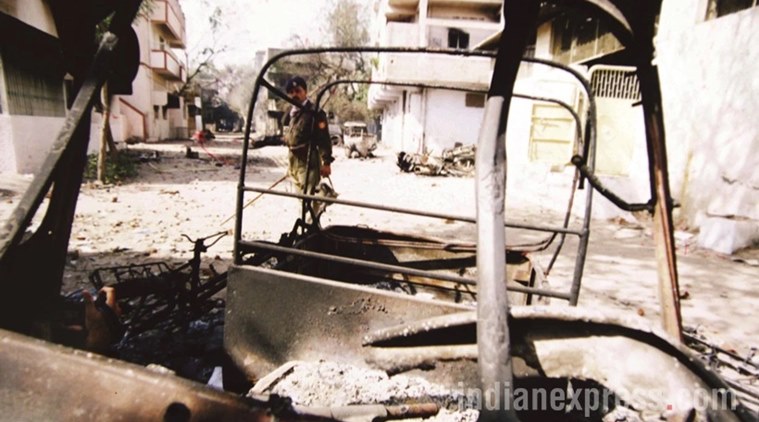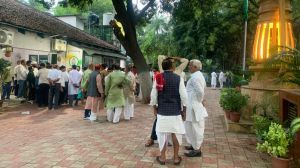Stay updated with the latest - Click here to follow us on Instagram
Gulberg convicts: How can you declare us menace to society
The defence cited a Supreme Court judgment commuting death sentence of two convicts to lifer for attacking American Centre in Kolkata in which five policemen were killed.
 File photo of Gulberg Society after the incident
File photo of Gulberg Society after the incident
Seeking lesser punishment instead of death or life in jail till death for 24 convicts in the Gulberg Society massacre, defence lawyers on Thursday argued that there was always scope for reformation and rehabilitation. The defence argued that leniency should be shown in view of their antecedents as after and before the Gulberg offence they were never part of any criminal activity.
The defence cited a Supreme Court judgment commuting death sentence of two convicts to lifer for attacking American Centre in Kolkata in which five policemen were killed.
Defence lawyer Abhay Bharadwaj told special judge P B Desai that “American Centre attack was held as attack on India’s sovereignty and a war against the nation, yet the court commuted the death to life keeping in mind about their rehabilitation.”
“Are we (24 convicts) falling under this category of terrorists? How can you declare us a menace to the society. You (prosecution) should show on evidence that we can’t be reformed. When the apex court thought that the two terrorists can be reformed, why can’t us?,” Bharadwaj argued.
[related-post]
Watch Video: What’s making news
Saying that the court has partially believed the prosecution case against the 24 convicts and not in totality, the defence lawyer sought to know how could the prosecution seek death for the convicts. “Fourteen years after that ghastly incident the state has been peaceful. The convicts were identified by the victims during the trial. The victims gave testimonies against them, still no untoward incident has taken place even in this particular locality. Before and after the incident the convicts have no other criminal antecedents, so how could they be termed as menace to the society,” Bharadwaj told the court.
He also argued that 14 years have passed and due to delay in trial, all the convicts were leading a normal life — one of the accused got married last year, while many have aged parents to look after. Therefore, he said, utmost leniency should be shown while pronouncing the quantum of sentence.
Bharadwaj also cited a number of judgments to counter the arguments of prosecution that for same or single criminal transaction a convict couldn’t be sentenced consecutively, rather it has to be concurrently. Another defence lawyer T R Bajpai told the court: “It was a communal riot. No personal gain was achieved and there’s no material to show that was any other motive. There was no enmity between the victims and the accused.”
On Friday, the SIT would argue its case further mainly on the points that how convicts could be sentenced consecutively and not concurrently for one offence and different provisions under which they had been held guilty. There are at least eight accused who have been in jail from eight years to 14 years during the pendency of trial.







